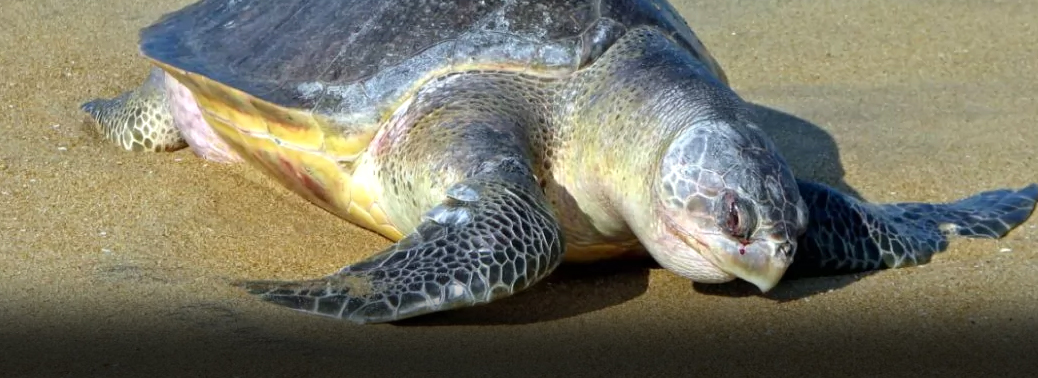Breedings Season Proves Fatal for Olive Ridleys
03, Jan 2019

Prelims level : Biodiversity
Mains level : GS 3: Conservation, environmental pollution and degradation, environmental impact assessment
Context:
- Many of the first batch of olive ridley turtles that chose the Andhra Pradesh coast for the annual breeding season have died before they reached the destination, after being trapped in fishing nets.
Details:
- The coast, considered a safe breeding zone, is now witnessing deaths among the migrating turtles. The breeding season normally commences in January and the conservation authorities prepare the ground for the season until mid-summer.
- The prime reason for the rise in the deaths is the absence of the ‘Turtle Excluder Device’ in fishing operations. The Wildlife authorities have identified 12 locations to set up rookeries between the Krishna and the Koringa wildlife sanctuaries.
About Olive Ridley turtles:
- The olive ridley sea turtle (Lepidochelys olivacea), also known as the Pacific ridley sea turtle, is a medium-sized species of sea turtle found in warm and tropical waters, primarily in the Pacific and Indian Oceans, Atlantic Ocean.
- The name for this sea turtle is tied to the color of its shell. They are carnivores in nature.
- Olive Ridley Turtles are best known for their behavior of synchronized nesting in mass numbers called ‘Arribada’
- Nesting period: From October to early summer
- In the Indian Ocean, the majority of olive ridleys nest in two or three large groups near Gahirmatha in Odisha. The coast of Odisha in India is the largest mass nesting site for the olive ridley, followed by the coasts of Mexico and Costa Rica.
- Conservation status: Vulnerable according to the (IUCN) and is listed in Appendix I of CITES.
- Protection under The Convention on Migratory Species (CMS) and the Inter-American Convention for the Protection and Conservation of Sea Turtles
- Threats: Incidental take, particularly in shrimp trawl nets and near shore gill nets, direct harvest of eggs and adults for their meat and skin, Marine pollution (including oil spills) and debris.
- To reduce accidental killing in India, the Orissa government has made it mandatory for trawls to use Turtle Excluder Devices (TEDs), a net specially designed with an exit cover which allows the turtles to escape while retaining the catch. However, this has been strongly opposed by the fishing communities as they believe TEDs result in loss of considerable amount of the catch along with the turtle. WWF-India, along with its partners, disproved this theory
- by conducting a study to measure the loss of catch through TEDs, revealing the loss to be a very small percentage of the total catch. This result, along with regular meetings with the fishing communities, is slowly helping
- to change their mindset and encourage use of TEDs, thereby aiding the conservation of Olive Ridley turtles.






